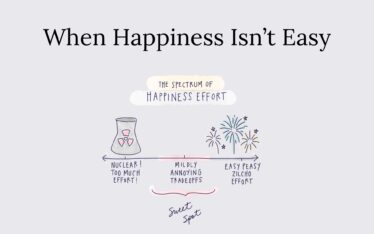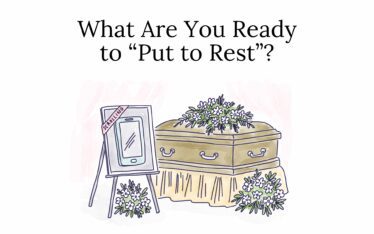It’s our wedding anniversary today, and while The Husband and I didn’t specifically say the words, “till death do us part” in our vows 17 years ago, we are all over death being the thing that parts us. This isn’t just because we’re into the lifelong commitment thing. It’s because we’ve had the death conversation.
As it turns out, people who are not me don’t really love talking about death. What this means is that a majority of people aren’t really sure what the person they know and love best wants in the end. Couples would rather talk about their trip to the Maldives with their ex than sit down for a rousing end-of-life chitchat. Research shows that a quarter of us don’t even know what we want when we’re dying (other than maybe a reprieve), so how can we have an awkward conversation about it when we don’t even know what awkward points to make?
I agree it isn’t easy – imagining the end of a relationship and the end of life (total double buzzkill) – even for those of us who practice memento mori (remembering we will die) for a living. The Husband and I embarked upon the conversation in our early days, courageously deciding that we were going with the option of dying peacefully in our sleep together in our 80s, on the exact same night. It was a decision that came surprisingly easy to us.
Ways to have the death conversation with your partner:
“Hey babe! Are you okay with those leftover enchiladas for dinner?”
“Sounds great.”
“Also, will you want mechanical ventilation to assist with breathing on your deathbed?”
Or you could approach the conversation at the pumpkin patch this weekend?
“Hey babe! Look how rotted this pumpkin is underneath!”
“Ew.”
“Which makes me think, exactly what organs and tissues do you want to donate?”
You get the idea.
Risks of skipping the death conversation with the one you love:
Silliness aside, there’s a cost to not knowing how the love of your life wants to die. By avoiding the discussion, we miss the chance to have an intimate, meaningful conversation that just might help us appreciate that our partner is still above ground. Who doesn’t get lucky after a “let’s fill out our living wills” date? An estate planning professional I know comments on the tenderness that comes from the meetings she has with clients. Talking about the end softens us and shines the light on what we might have to lose. (And I don’t just mean our estates.) Only 44 percent of us have wills in place… maybe a recipe for a hot date night if you do it online together?
Studies show that by not being clear on our partner’s end-of-life preferences, we tend to mess it up 32 percent of the time by projecting our own preferences on the situation. “I’m totally sure he wouldn’t want morphine right now” might be a bad call for your better half. I don’t want to pull the plug on The Husband (just because it’d be my choice 100 times out of 100) if he really just wanted to go towards the light after months in a persistent vegetative state coma. These are uncomfortable issues that are better discussed before pain and comas are even on the horizon.(Interested in more about the quality of life and well-being near death? If you haven’t read Atul Gawande’s Being Mortal, then now you know what you’re doing this weekend. No pumpkin patch for you.)
What needs to be said in this morbid partner conversation?
- You might begin by completing the How Many Mondays Do You Have Left Calculator for some perspective
- Talk about what you’re looking forward to in growing old with your partner
- Talk about what you’re afraid of with aging and dying
- Organ and tissue donation
- Life-prolonging decisions if there is no probability of your survival (do not resuscitate preferences, etc.)
- Palliative care wishes (preference to die at home with hospice, avoid procedures + tests, etc.)
- Estate + financial planning (wills, who gets what, etc.)
- Life insurance
- Final wishes (cremation or burial, plot preferences, etc.)
- Funeral/ service details (solemn vs. celebratory vibe, who should be there, etc.)
- Other (what to say to kids, religious/ spiritual matters, etc.)
It’s all too easy to not have the conversation with the love of your life about dying. Let’s be brave. Let’s be willing to confront the inevitable, and willing to get even closer to our partners through a life-provoking discussion about the end. Love means never having to say, “I think he’d want morphine… maybe?”.







